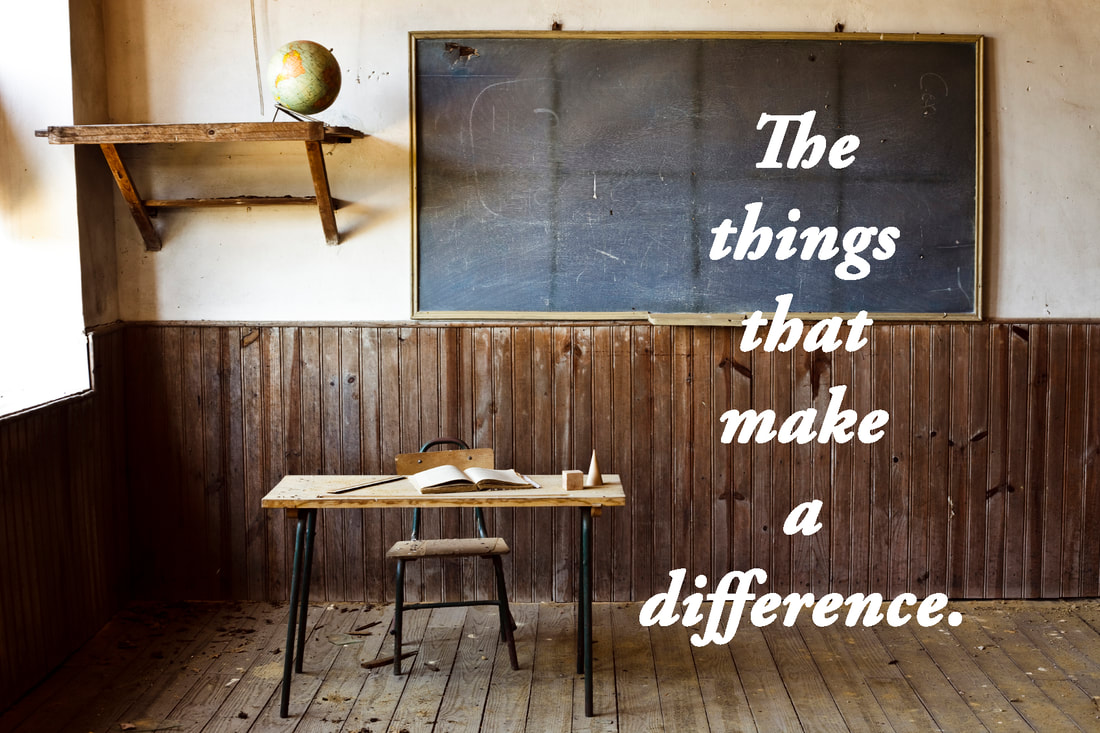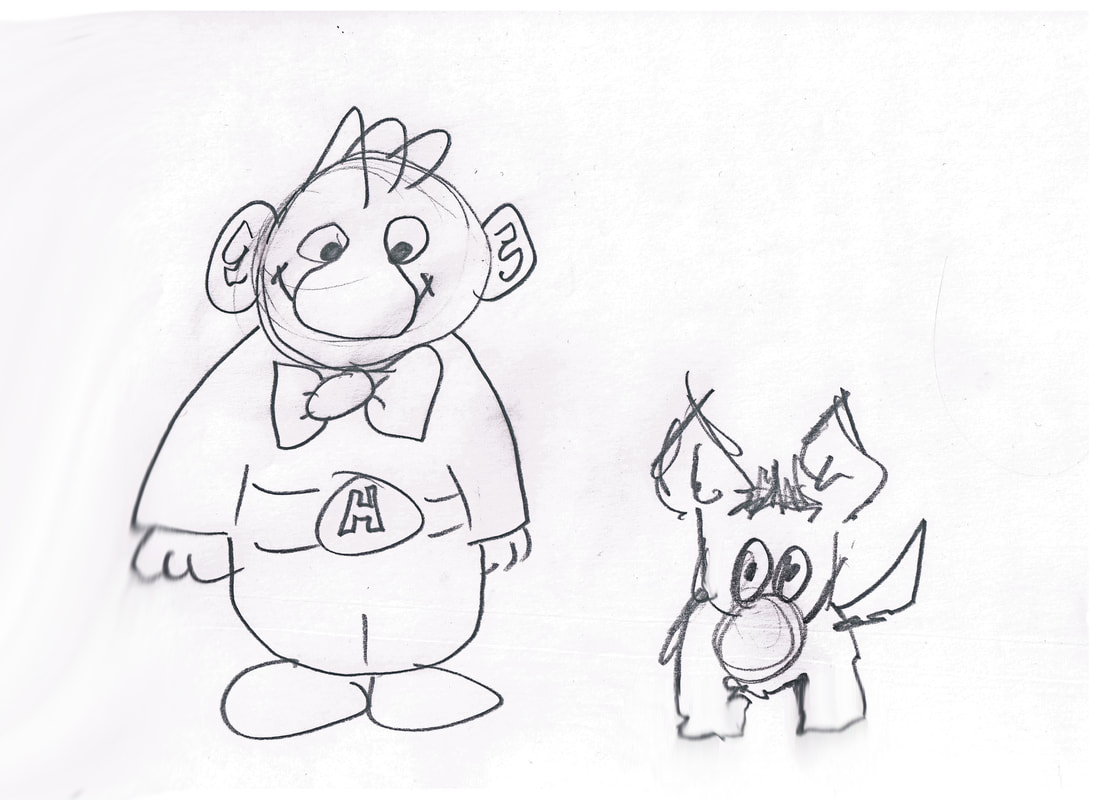I'm sure you have seen the articles positing that studying or listening to music makes kids smarter. You know, that little bit of Mozart in the morning will get the synapses firing a few milliseconds faster. That may be true. Maybe it makes a difference.
Disclaimer: I ain't nothing but an old country music teacher making docs in Bank Street Writer, typing on his Commodore 64, so some people might say I don't know nothing about nothing.
But what I do know is that after teaching music for over four decades with my eyes watch open, I've observed thousands of students in the arena of music. Some were students in a general music class, some were performers, some were on the sidelines as active appreciators, and some simply wanted to play that one song they loved over and over.
As I taught and took into account my biases, I nonetheless saw a trend. It was that the individuals and groups that developed an early appreciation for self-discipline were the ones where music had the greatest impact on their lives.
Sel-discipline made a difference every time.
Self-discipline leads to happier outcomes. It embraces the concept of beginning any multi-step activity with the forbearance and honesty required to reach a successful conclusion. It doesn't matter if you're playing in an orchestra, singing in a chorus, on the soccer team, or dancing in a ballet troupe. It doesn't matter if you have the skills I have a 10 year old triathlete, if you have a chronic illness, if you're in a hospital bed, or if you’re in a wheelchair.
Of all the attributes that we assign to successful kids as well as self-actualized adults, you can often point to self-discipline as the “secret sauce” that held them together when others would have quit or give in to distraction.
Every year, society slags school systems for not teaching the “important” things, like civics, civility, financial literacy, compassion, manners, or loyalty. Self-discipline barely gets mentioned but is often the one character trait that pays the greatest dividends when embedded with other personal attributes.
As music teachers we need to observe kids and see where they are already embracing self-discipline and then encourage it in a generalized manner to other areas of potential interest or need for the child.
For instance, when I was a four years old, I created and drew a cartoon character named Harry.
Disclaimer: I ain't nothing but an old country music teacher making docs in Bank Street Writer, typing on his Commodore 64, so some people might say I don't know nothing about nothing.
But what I do know is that after teaching music for over four decades with my eyes watch open, I've observed thousands of students in the arena of music. Some were students in a general music class, some were performers, some were on the sidelines as active appreciators, and some simply wanted to play that one song they loved over and over.
As I taught and took into account my biases, I nonetheless saw a trend. It was that the individuals and groups that developed an early appreciation for self-discipline were the ones where music had the greatest impact on their lives.
Sel-discipline made a difference every time.
Self-discipline leads to happier outcomes. It embraces the concept of beginning any multi-step activity with the forbearance and honesty required to reach a successful conclusion. It doesn't matter if you're playing in an orchestra, singing in a chorus, on the soccer team, or dancing in a ballet troupe. It doesn't matter if you have the skills I have a 10 year old triathlete, if you have a chronic illness, if you're in a hospital bed, or if you’re in a wheelchair.
Of all the attributes that we assign to successful kids as well as self-actualized adults, you can often point to self-discipline as the “secret sauce” that held them together when others would have quit or give in to distraction.
Every year, society slags school systems for not teaching the “important” things, like civics, civility, financial literacy, compassion, manners, or loyalty. Self-discipline barely gets mentioned but is often the one character trait that pays the greatest dividends when embedded with other personal attributes.
As music teachers we need to observe kids and see where they are already embracing self-discipline and then encourage it in a generalized manner to other areas of potential interest or need for the child.
For instance, when I was a four years old, I created and drew a cartoon character named Harry.
I drew Harry thousands of times. Each time I drew him, he was a little different but mostly the same. Think of my thousands of Harry drawings as experimentation, as a theme with a thousand-and-one variations. I created friends for Harry: a dog, a robot, the necessary villain, as well as many other characters but Harry always remained the central orb in this constellation of players.
I continued to draw Harry daily through elementary school until I was ten or eleven. Then I would draw him off and on, often absentmindedly, in the margins of textbooks, or on the pages of notebooks. He was never that far away.
By the time I hit junior high, I was showing some advanced proclivity to painting and drawing. My uncle, who was the draftsman who studied with American illustrator Frank Schoonover, gave me an art book that changed my life - “The Natural Way to Draw: A Working Plan for Art Study” by Nicolaides.
It wasn't so much a book about drawing as it was a book about visualizing, practice, assessment, the power of repetition, and - you guessed it – self-discipline.
At the end I was one of the first chapters, there was an assignment to draw shaded spheres and cones. Each exercise was to be done 1,000 times. I remember I showed this to my uncle and asked if it was a misprint or typo. He said I think it might be a mistake.
“I think what he wants you to do is do it ten thousand times, sort of like the way you draw that little rolley-polley boy you made up.”
And it made sense.
The areas of my life where I was achieving success, finding self worth, finding value, were the areas where I found myself doing something I could do I repeatedly with an eye toward editing and improving.
That's the way it was with my music as well as it was with my art.
I played songs on my trumpet and piano for hours. I routinely read books from cover to cover in one sitting. For that matter that's the way it was with sports, bouncing a rubber ball off the wall and try to hit the same brick five times in a row to get the same rebound.
Did I generalize self-discipline to all areas of my life as a kid?
Hell no.
I was a kid and kids are designed to push the boundaries as well as stress test the levels of credit cards, bank accounts, relationships, teachers, parents, and progress reports.
But in my “chosen” areas – music, art, books, and imagination - I was like that old baseball pitcher: when needed, I could reach back and find that magical self-discipline pitch and throw it for a strike.
Self-discipline is a muscle, a developing habit to be saved for another post. But it’s worth repeating: self-discipline is a muscle.
Kids develop this muscle without even realizing they're doing it. It's our responsibility as music teachers to observe children closely, see where they're exhibiting this kind of behavior of self-discipline and a love for something, even if it's not music, and make it grow.
And if their level of intellectual curiosity hasn’t bloomed yet, we have to expose them to a world of possibilities that will trigger their intuitiveness and natural tendency to be repetitive with the things they love.
This is how we make a difference.
I continued to draw Harry daily through elementary school until I was ten or eleven. Then I would draw him off and on, often absentmindedly, in the margins of textbooks, or on the pages of notebooks. He was never that far away.
By the time I hit junior high, I was showing some advanced proclivity to painting and drawing. My uncle, who was the draftsman who studied with American illustrator Frank Schoonover, gave me an art book that changed my life - “The Natural Way to Draw: A Working Plan for Art Study” by Nicolaides.
It wasn't so much a book about drawing as it was a book about visualizing, practice, assessment, the power of repetition, and - you guessed it – self-discipline.
At the end I was one of the first chapters, there was an assignment to draw shaded spheres and cones. Each exercise was to be done 1,000 times. I remember I showed this to my uncle and asked if it was a misprint or typo. He said I think it might be a mistake.
“I think what he wants you to do is do it ten thousand times, sort of like the way you draw that little rolley-polley boy you made up.”
And it made sense.
The areas of my life where I was achieving success, finding self worth, finding value, were the areas where I found myself doing something I could do I repeatedly with an eye toward editing and improving.
That's the way it was with my music as well as it was with my art.
I played songs on my trumpet and piano for hours. I routinely read books from cover to cover in one sitting. For that matter that's the way it was with sports, bouncing a rubber ball off the wall and try to hit the same brick five times in a row to get the same rebound.
Did I generalize self-discipline to all areas of my life as a kid?
Hell no.
I was a kid and kids are designed to push the boundaries as well as stress test the levels of credit cards, bank accounts, relationships, teachers, parents, and progress reports.
But in my “chosen” areas – music, art, books, and imagination - I was like that old baseball pitcher: when needed, I could reach back and find that magical self-discipline pitch and throw it for a strike.
Self-discipline is a muscle, a developing habit to be saved for another post. But it’s worth repeating: self-discipline is a muscle.
Kids develop this muscle without even realizing they're doing it. It's our responsibility as music teachers to observe children closely, see where they're exhibiting this kind of behavior of self-discipline and a love for something, even if it's not music, and make it grow.
And if their level of intellectual curiosity hasn’t bloomed yet, we have to expose them to a world of possibilities that will trigger their intuitiveness and natural tendency to be repetitive with the things they love.
This is how we make a difference.


 RSS Feed
RSS Feed